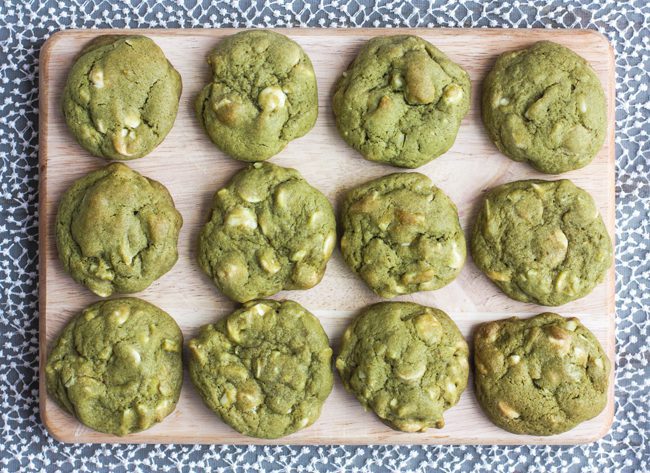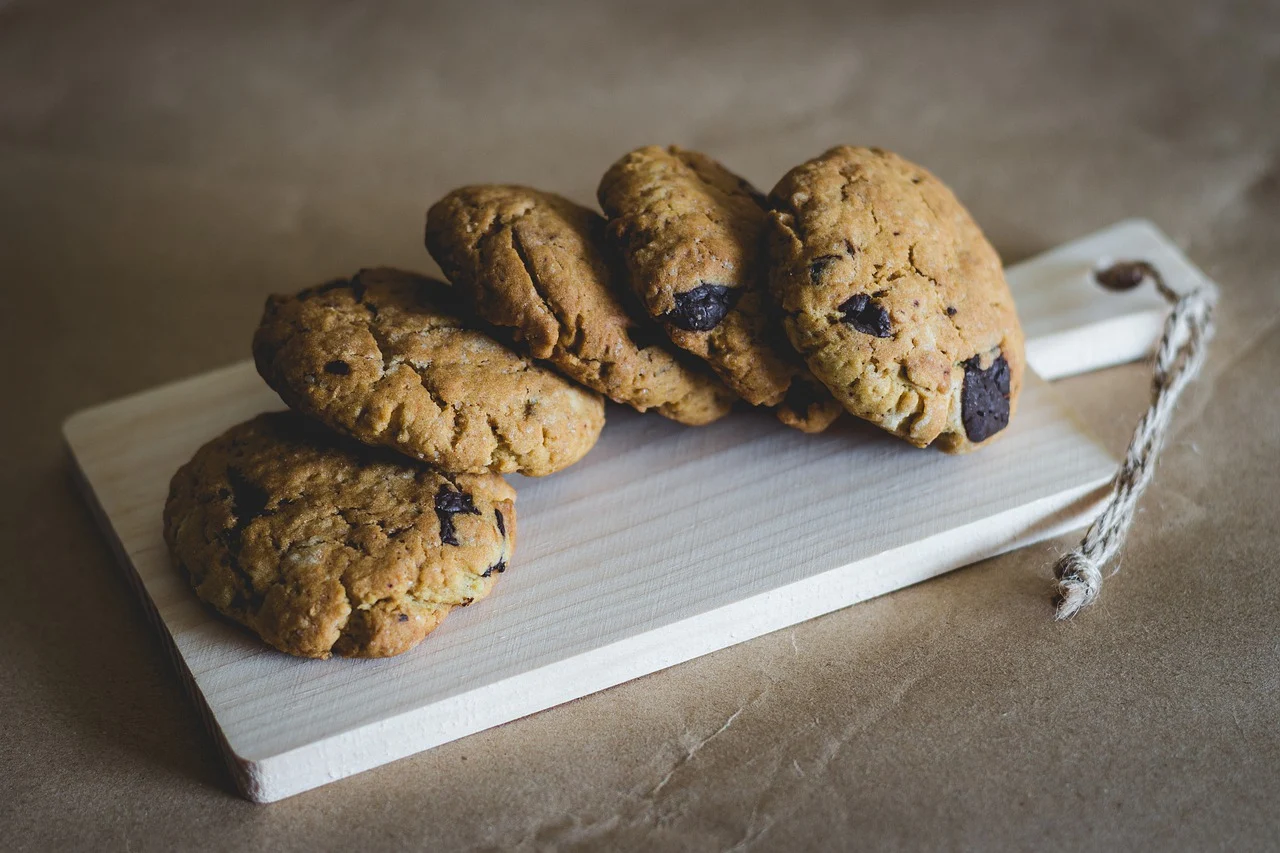Effective sugar reduction in a formula with sugar substitutes like stevia, monk fruit, erythritol and allulose is not only about replacing the sweetness of sugar, but also replacing its bulk. This is particularly important for applications such as baked goods, desserts, and confections where the product’s size would be considerably smaller without the addition of bulking ingredients and bulking agents. Fortunately, there are a variety of effective bulking methods available as they serve an important functional use in product development.
Bulking with Water, Flour, and Ingredients Already in the Formula
Starting with a basic scenario like sugar reduction in a ready-to-drink beverage, for example, developers can maintain the beverage’s bulk by just adding more water, a simple and cost effective solution. However, in an application such as a cookie, due to the removal of sugar, the cookie will be significantly smaller if no bulking agent is used. One option is to add bulk with flour and other ingredients that are already in the formula. Sometimes though, this may result in a dry and plain-tasting cookie — in which case we’d recommend considering the options that follow.
Maltodextrin, a Neutral Bulking Ingredient
Another option is to add bulk with a neutral ingredient like maltodextrin, which is about 10% as sweet as sugar. With maltodextrin, calories would remain the same but it’s important to note that some consumers may not consider maltodextrin to be ‘clean label.’ When it comes to cost, regular powdered maltodextrin costs slightly less than sugar in the US, but the agglomerated version that is easily soluble costs significantly more.
Dried Glucose Syrup (Corn Syrup Solids)
Similar to maltodextrin, dried glucose syrup, or corn syrup solids is another neutral-tasting ingredient that can be used in formulations as a bulking method. The calories and carbs are slightly lower than sugar, and the total sugar is only 6g/100g, which allows for significant sugar reduction without losing bulk. However the cost is higher than isomalto-oligosaccharides (IMO) so you would need to decide which bulking agent is most practical to use.
Sugar Alcohols, Allulose, Tagatose
Our formulation experts have also had success with sugar alcohols like allulose (these ingredients don’t go through the typical digestive process). Erythritol or allulose are most often paired with stevia since they are considered natural. These have about 2/3 the sweetness of sugar and provide an upfront sweetness that stevia does not always provide.
One new and upcoming ingredient is tagatose, which follows a similar metabolic pathway as allulose. If the FDA allows manufacturers to not count tagatose as an added sugar on their labels, we expect to see a significant increase in demand (similar to the soaring appeal for allulose after it received such a designation from the FDA). Because allulose is not digested, the calories are significantly reduced and the ingredient does not get counted as a sugar. On the other hand, such ingredients have the potential to cause digestion issues if consumed at at high quantities, so it’s essential to formulate with a balanced amount that minimizes such issues for consumers.
Fiber and Fiber-Like Ingredients
Dietary fibers and fiber-like ingredients can provide bulk for sugar reduction in a similar fashion to sugar alcohols. These ingredients, indicated in the chart below, have reduced calories and provide some upfront sweetness to complement stevia. But also similar to sugar alcohols, fibers are known to impact digestion at high levels.
| Ingredient | Source | Relative Sweetness | Calories | Suggested Max Dose | Label Choices |
| Inulin | Jerusalem Artichoke | 30 | 1.5 | 10g/dose 40g/day | Inulin, oligofructose, Jerusalem artichoke extract, Jerusalem artichoke fiber, etc. |
| Resistant Maltodextrin/ Dextrin | Corn Starch | 10-30 | 1.2-2.1 | 15-40g/dose 30-65g/day | Resistant maltodextrin, resistant dextrin, soluble corn fiber |
| IsoMalto-Oligosaccharides | Starch | 34-50 | 2.4 | 15-20g/dose 30-40g/day | IsoMalto-Oligosaccharides, IMO |
| Short Chain Fructo-Oligosaccharides | Cane or Beet Sugar | 30 | 1.5 | 10g/dose 20g/day | FOS, scFOS, short chain fructan (fiber), cane sugar/sugar derived fructan |
| Galacto-Oligosaccharides | Lactose | 30-60 | 1-2 2 (EU) | 10g/dose 20g/day | GOS, galacto-oligosaccharides |
| Xylo-Oligosaccharides | Xylose | 40 | 0-2 | 4-5g/dose | XOS, xylo-oligosaccharides |
| Polydextrose (Artificial) | Glucose, citric acid, sorbitol | 5-10 | 1.0 | 10-50g/dose 90g/day | Polydextrose |
Many consumers fall short of their recommended daily fiber intake, so adding these ingredients can provide a great bonus to your product’s nutritional panel. If your product is a baked good, we’d recommend fibers such as inulin and short chain fructo-oligosaccharides (FOS) as they have a nice browning effect. Lastly, there are labeling differences to consider by market with fibers — as an example, IMOs do not count as fiber in the US, but they do in Canada.
Howtian’s Proprietary Blends
Oftentimes, it can be a challenging process to continuously calibrate different sweetener and bulking ingredient levels until you achieve the right formulation for your product. In such cases, a simple drop-in solution may be preferred. Howtian LLC has created several options for product developers to add into formulas without a significant need for further adjustment. For instance, we offer stevia or monk fruit co-processed with erythritol or allulose at various ratios, providing 1-2 times the sweetness of sugar. These are commonly used in tabletop products and have the benefit of not separating in the production, packaging, or distribution process due to their unique properties.
Sample Formulation: Reduced-Sugar Ice Cream

To put these proprietary stevia blends into action, we created a demonstration of a 50% reduced-sugar ice cream. One demonstration features erythritol while the other features allulose — both sweeteners drop the freezing point more than sugar to provide a very similar end-product. Additionally, the bulking methods described above were applied to arrive at the final formula for each. The chart below details the formulation for these variations.
| Ingredient | Full Sugar | Erythritol | Allulose |
| Milk | 59.76 | 61.29 | 61.29 |
| Sugar | 9.96 | 5.11 | 5.11 |
| Cream | 29.88 | 30.64 | 30.64 |
| Vanilla Flavor | 0.40 | 0.41 | 0.41 |
| Howtian Erythritol & Stevia (2x sweet) | 2.55 | ||
| Howtian Allulose & Stevia (2x sweet) | 2.55 | ||
| Total | 100g | 100g | 100g |
Introducing DGS E100 and F100: New Line of 1:1 Sugar Replacements for Baking & More
For many food & beverage manufacturers, simple drop-in solutions are the preferred method for replacing both sweetness and bulk in their sugar reduction applications. Howtian LLC is expanding its portfolio of “drop-in” sugar reduction solutions and has launched a new line of products called DGS E100 and F100. These sweetener blends combine erythritol, allulose, soluble fiber, stevia extract, and natural flavors as a 1:1 replacement to sugar. They are specially formulated for optimal taste and performance with a natural flavor to mask any off-notes from ingredients such as vitamins. The DGS line is ideal not only for baking applications, but can be used for tabletop sweeteners, confections and a wide variety of products.
In our recent trade conferences and roadshows, we have been demonstrating DGS E100 in chocolate chip and matcha white chocolate chip cookies — both with very positive feedback from taste-testers and our industry peers. If you’re interested in sampling these demos, hopefully we’ll see you at an upcoming event to experience our DGS line of sweeteners yourselves!
In the meantime, below are the formulas used for our new matcha white chocolate chip and classic chocolate chip cookies. Please contact one of our representatives if you’d like to learn more about DGS and these cookie recipes.
| Matcha White Chocolate Chip Cookies | Reduced Sugar |
| Butter | 15.760 |
| Howtian DGS Series | 5.533 |
| Eggs | 6.942 |
| Vanilla Extract | 0.292 |
| Matcha Powder | 1.042 |
| Flour | 51.654 |
| Baking Powder | 0.261 |
| Baking Soda | 0.083 |
| Salt | 0.208 |
| White Chocolate Chips | 18.225 |
| Total | 100g |

| Classic Chocolate Chip Cookies | Reduced Sugar |
| Butter | 19.498 |
| Brown Sugar | 5.75 |
| Eggs | 8.59 |
| Skim Milk | 1.31 |
| Howtian DGS Series | 5.377 |
| Rolled Oats | 5.15 |
| Flour, White | 23.19 |
| Baking Soda | 0.52 |
| Vanilla Extract, Indonesian, 2x, Ottens | 0.37 |
| Salt | 0.52 |
| Mini Semisweet Chocolate Chips | 29.725 |
| Total | 100g |

Ready to create your own sugar reduction success story? Partner with us and learn more about reducing sugar in your formulations. Contact us for your product development and formulation needs!

